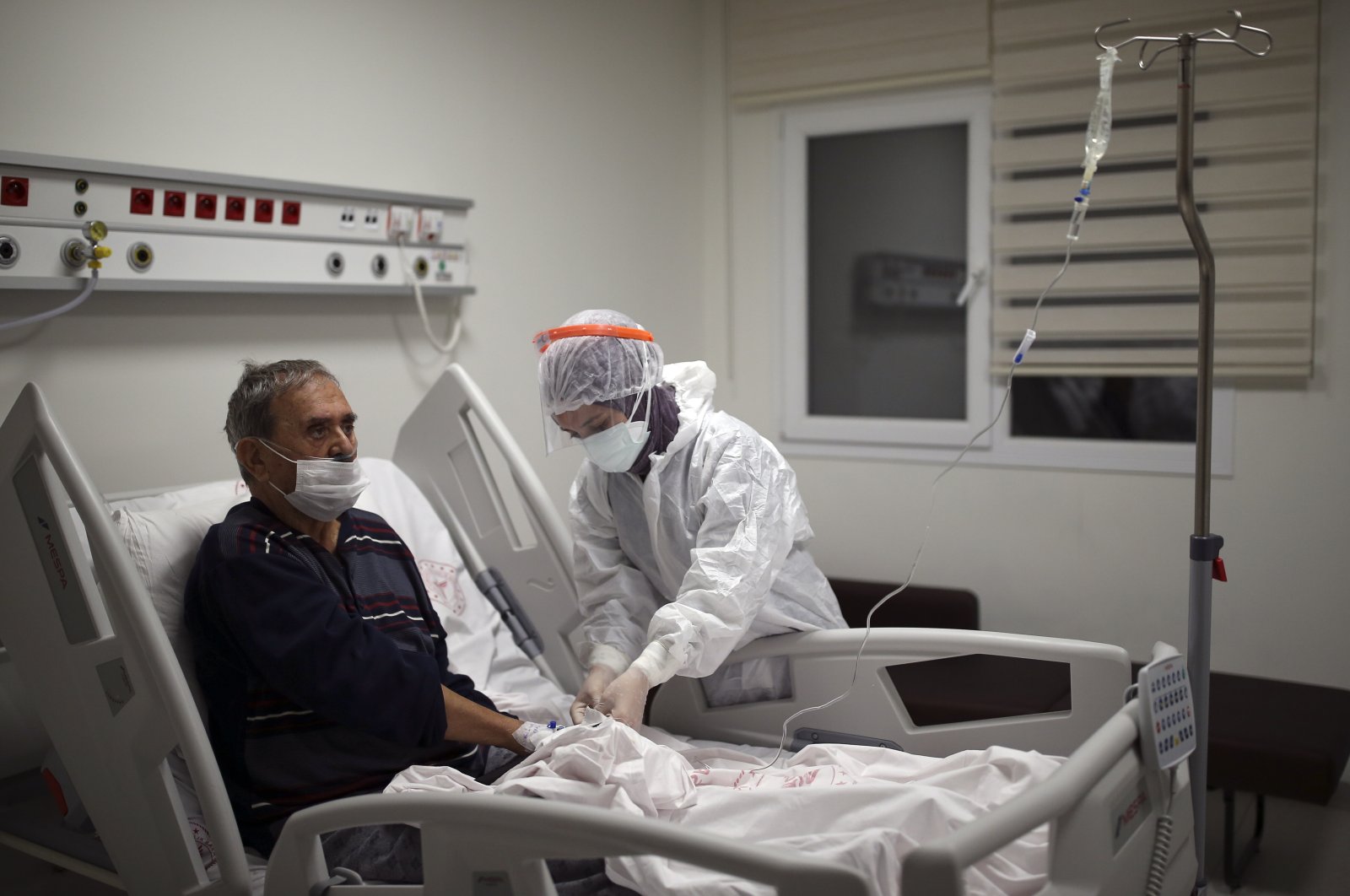Turkey's prefab hospitals contributes fight against coronavirus

Two prefabricated infirmaries in Istanbul, constructed in less than 45 days and opened in May, are offering state-of-the-art intensive care facilities dedicated to COVID-19 patients on the city’s European and Asian sides.
Named after renowned Turkish physicians who died from the disease, the hospitals are located near airfields to give ease of access to sufferers from across Turkey and are built to similar specifications, each with 1,008 beds, 16 operating theaters, dialysis units and wards for infected pregnant women and babies.
One of them is Dr. Feriha Öz Emergency Hospital, located in Çekmeköy district on Istanbul’s Asian side. In a pristine intensive care room, the air cleaned with filters that capture the airborne virus, 52-year-old construction worker İsmet Yücel was recovering. “They brought me here in an ambulance. I couldn’t breathe,” he said through an oxygen mask. “My lungs were infected. I was in a very bad condition. I couldn’t breathe. Thank God, I’m fine now.”
When the pandemic first struck, Turkey was credited for quickly bringing infection rates under control. It is now seeing an explosion in cases that is putting a serious strain on its health system.
The seven-day average for daily infections is more than 25,000 while the daily death toll has been breaking record highs in recent weeks, with total fatalities reaching above 18,000. The government has imposed nighttime curfews and weekend lockdowns to try to slow the surge, as well as announcing a four-day lockdown from New Year’s Eve. Restaurants can only serve takeaway meals, while some businesses such as hairdressers are allowed to operate limited hours. Children and the elderly have been barred from using public transport.
Batuhan Yağcı, a nurse at Dr. Feriha Öz hospital, stressed that the coronavirus does not just represent a danger to the elderly. “Even those who are 27, 25, 20 years old are having difficulties breathing and breakdown crying in front of our eyes,” he said. “They say ‘I can’t breathe, please don’t leave me. Hold my hand.'”
During a visit to the hospital, the Associated Press (AP) team saw nurses caring for an 11-day-old baby boy who arrived just five days after his birth.
Dr. Çiğdem Akalan Kuyumcu, an infectious disease expert working in the ICU, said many patients feared admission to the unit. “We have patients that ask as they are entering the ICU, ‘Will I be able to come back?’ This affects us profoundly,” she said. “It saddens us. Of course, when our patients recover we are overjoyed.”
On the European side of the city, Professor Murat Dilmener Emergency Hospital serves patients at Atatürk Airport, Istanbul’s former aviation hub. With its 1,008 beds, the hospital was constructed immediately after the pandemic made its foray into Turkey in March. It stands out among its peers with its architecture and the advanced medical technologies it uses. Built on a space of 125,000 square meters, the hospital has 16 operating rooms and 432 intensive care unit beds.
As the pandemic worsened around the world, Turkey has mobilized every hospital in the country to cope with the mounting number of cases. City hospitals, with their large capacities, have been at the forefront of efforts to respond to the growing number of patients.
The new restrictions on everyday life have proved successful in reducing the number of patients admitted, according to the Feriha Öz hospital’s chief physician, Dr. Nurettin Yiyit. “With the start of the restrictions, we saw a significant drop in the number of patients admitted as walk-ins,” he said. “When we compare it with the week before, we see a 30% decrease in walk-in admissions.”
